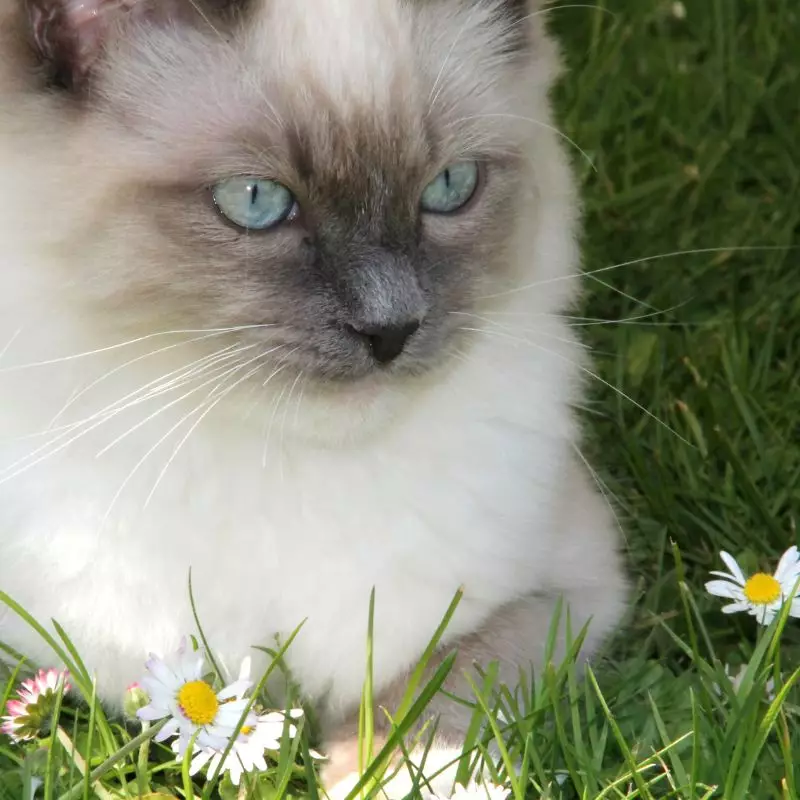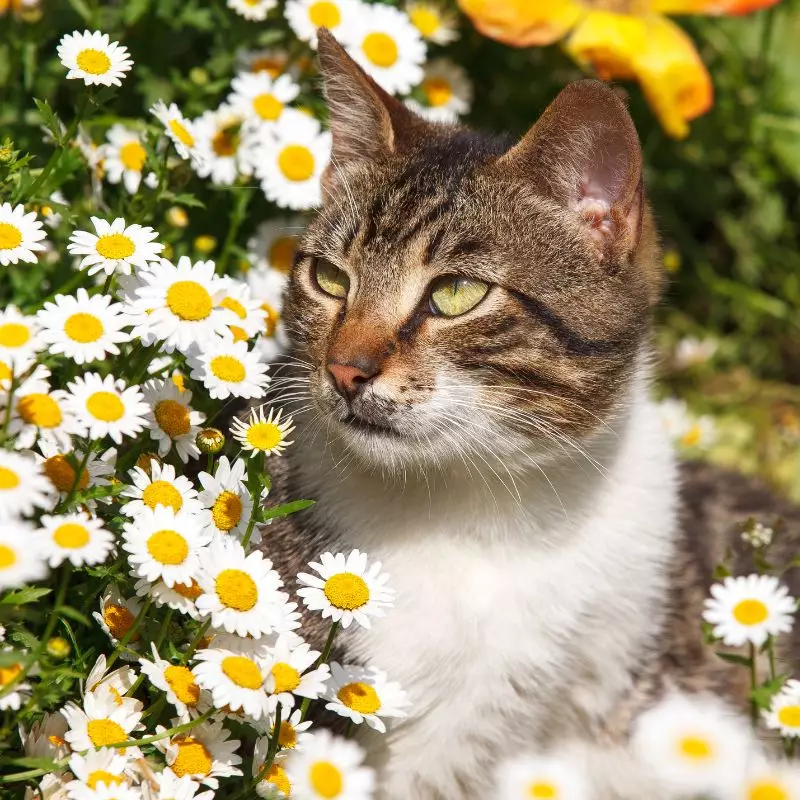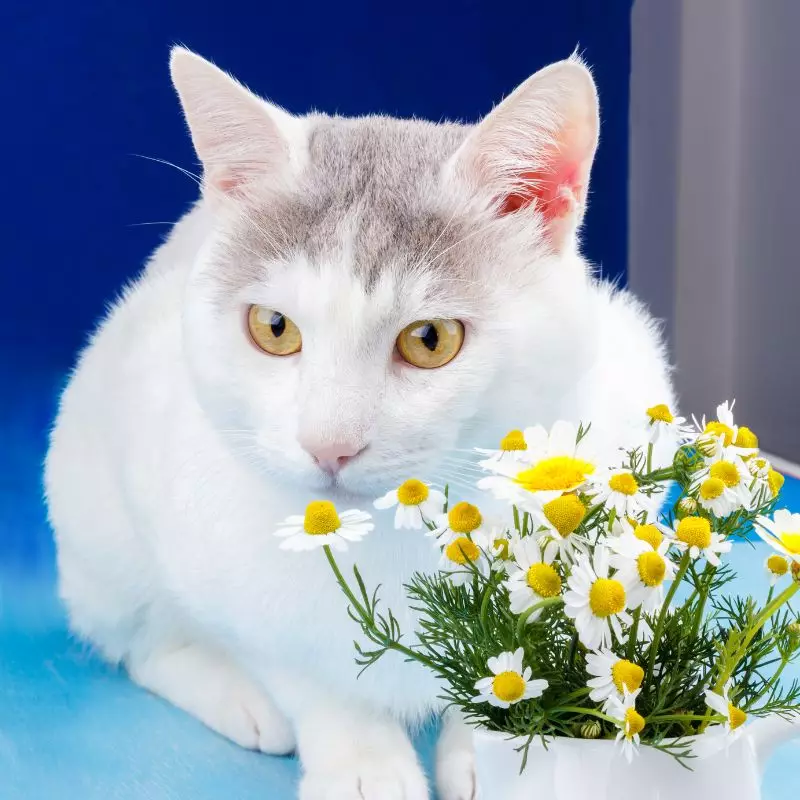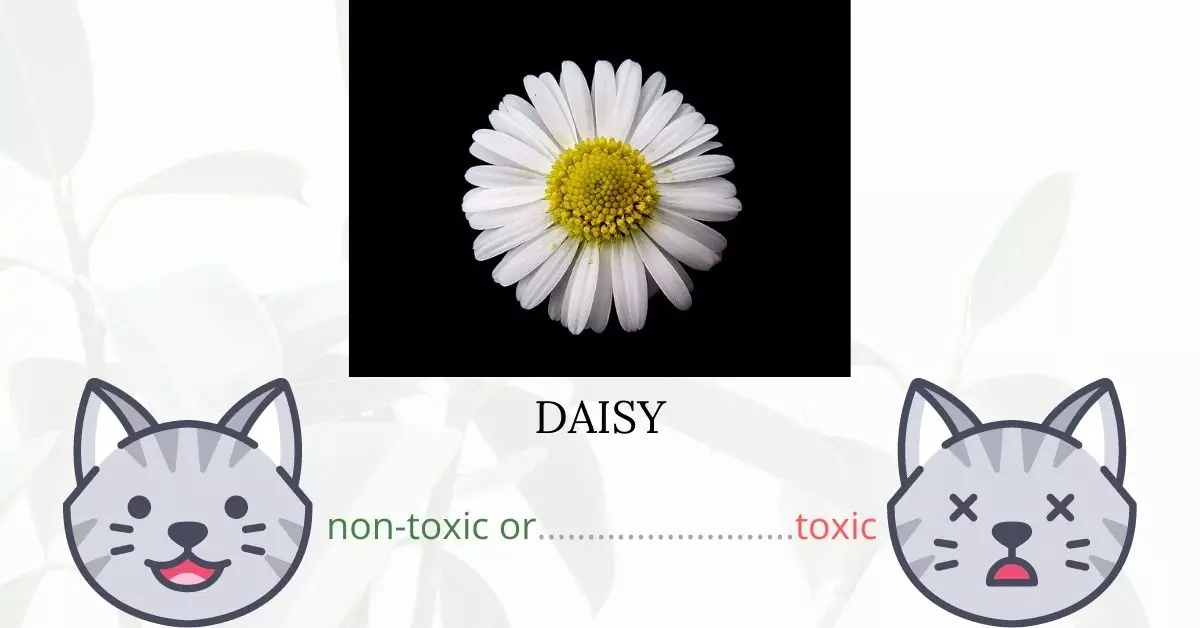Daisies, while beautiful and popular in many gardens and homes, are indeed toxic to cats. It is crucial for cat owners to be aware that these charming flowers contain compounds such as sesquiterpene, lactones, and pyrethrins. Sesquiterpene can lead to skin irritation, hypersalivation, vomiting, diarrhea, and gastrointestinal tract bleeding in cats. Meanwhile, pyrethrins and lactones can negatively impact the feline nervous system, causing symptoms like lack of coordination and, in severe cases, even death.
This article has been prepared in collaboration with a team of experienced DVMs (doctors of veterinary medicine). Their expertise and insights ensure that we deliver accurate and up-to-date information about the potential risks that various plants, such as Daisies, pose to cats. Additionally, our findings are supported by extensive research from high-authority websites, including the ASPCA and PetMD, to further confirm the implications of each plant on our feline friends.
Clinical Signs of Daisy Poisoning in Cats

When cats come into contact with, smell, or ingest daisy plants, they may exhibit certain clinical signs that indicate poisoning. These symptoms are attributed to the various toxic compounds present in the daisy, each causing distinct reactions in the feline body:
- Appetite Loss: Often a result of gastrointestinal discomfort or a systemic reaction to the toxic compounds, cats may show diminished interest in food.
- Diarrhea: The ingestion of daisies can irritate the cat’s gastrointestinal system. Sesquiterpene, one of the compounds, can result in gastrointestinal tract bleeding and upset, leading to diarrhea.
- Drooling (Hypersalivation): The sesquiterpene in daisies can cause hypersalivation, which presents as excessive drooling.
- Skin Itching and Irritation: Coming in contact with daisies can lead to skin reactions. The irritants in the plant, like sesquiterpene, can cause itching and overall skin discomfort.
- Loss of Coordination and Balance: Pyrethrins and lactones in daisies affect the nervous system. This can cause neurological symptoms like unsteady movements and poor balance.
- Lesions or Bumps: These may form on areas where the cat’s skin has come into direct contact with the daisy, as an allergic or irritant reaction.
- Vomiting: Due to the gastrointestinal distress caused by the toxic components of the daisy, a cat might vomit after ingestion.
It’s important to remember that while these symptoms can be indicative of daisy poisoning, similar symptoms can also arise from other toxic plant ingestions. Therefore, if you suspect your cat has consumed a daisy or is showing these signs without evident cause, it is essential to consult a veterinarian promptly.
First Aid and Treatment of Daisy Poisoning in Cats

The most effective treatment for poisoning is to begin fluid therapy for the cat right away. The vet can induce many of the toxins existing in the cat’s body to be eliminated by urination and dilute the chemicals that have been digested into the bloodstream by giving more liquid to the cat’s body. Furthermore, fluid therapy will aid in the relief of dehydration symptoms that may be induced by prolonged vomiting and diarrhea.
If the cat’s refusal to food persists, it may be required to administer medications that protect the stomach lining from digestive acids, preventing further damage and inflammation. To address the other symptoms that your cat may be experiencing, the veterinarian may prescribe and administer other medications depending on your cat’s specific needs.
Recovery from Daisy Poisoning in Cats

The majority of cats poisoned by consuming daisies will recover quickly, with most symptoms disappearing in less than a week. However, owners should be aware of their cat’s need for rest and should feed them bland food, as well as limit their cat’s activity for several days after the poisoning. In more serious circumstances, a cat may require additional visits to the veterinarian to check their development, as well as owner surveillance to ensure that they do not suffer from the more serious side effects of pyrethrin intake.
Prevention of Daisy Poisoning in Cats
Daisy plants are not advisable to be placed in households with cats living in them. It should be removed from your yards and gardens to avoid another poisoning episode of your cat. You may confine your cat inside a cat cage or play fence to keep them safe and busy indoors. The less time your cat spends outdoors, the lesser the chance he or she will encounter a daisy plant or even other toxic plants.
If you love plants but have cats at home, check out these lists:





